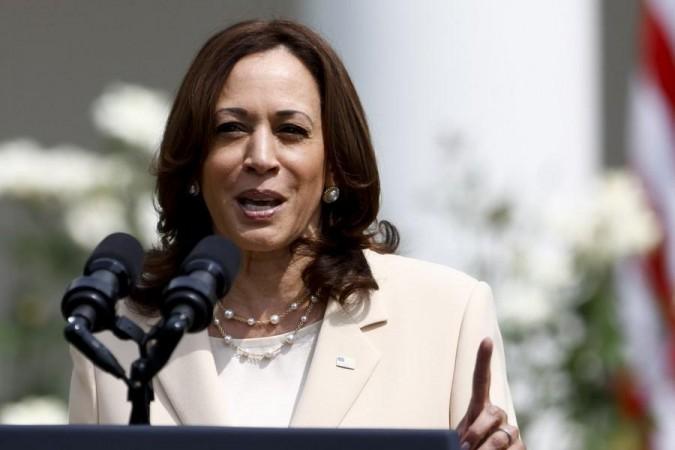
In a recent rally in Atlanta, former President Donald Trump continued his campaign for a return to the White House by launching a series of attacks on his Democratic rival, Kamala Harris. Trump, along with his running mate J D Vance, sought to define Harris as an ultra-radical and criticized her record as a prosecutor. In a move that has drawn criticism, Trump also made a sly reference to Harris's past relationship with Willie Brown, a powerful California politician, suggesting that Brown could reveal intimate details about Harris.
Trump's attacks on Harris extended to her identity as well. He claimed that Harris had always identified as Indian and only recently began acknowledging her African heritage on her Jamaican father's side. This claim was met with backlash, as Harris has consistently identified with her African heritage. In response to the criticism, Trump made light of the different ways to pronounce Harris's name, settling on a deprecating pronunciation and adding the term Crazy to it.
The rally took place just a day after Harris secured her nomination in an electronic poll of her party convention delegates. Trump's lead in the polls has shrunk to 1.2 per cent according to the RealClear Politics aggregation of polls.
In Georgia, Trump has a narrow lead of 2 per cent over Harris in the aggregation, while losing to her the lead he had over Biden in four of the seven battleground states, which can turn either way and determine the election's outcome. Trump's rally was not without controversy. He congratulated Russia's President Vladimir Putin for a prisoner exchange, attempting to portray Biden as weak. He claimed that he had never paid anything for the release of US prisoners held abroad. However, he criticized Biden's deal to secure the release of three Americans, including Wall Street Journal reporter Evan Gershkovich, stating that it set a bad precedent.
The prisoner exchange between the United States and Russia was a significant event, marking the largest such exchange since the end of the Soviet era. The deal saw the release of several Americans, including journalist Evan Gershkovich and Paul Whelan, alongside dissidents, in a multinational deal that freed a total of two dozen people.
Trump's campaign has been marked by divisive rhetoric and personal attacks. His comments about Harris's identity were met with strong criticism from the White House. White House Press Secretary Karine Jean-Pierre called Trump's remarks repulsive and insulting. The White House has defended Harris's identity and criticized Trump's comments as inappropriate.

Trump's attacks on Harris and his reaction to the prisoner exchange with Russia are reminiscent of his previous tactics. Throughout his political career, Trump has often used personal attacks and divisive rhetoric to rally his base and discredit his opponents. His comments about Harris's identity and his criticism of the prisoner exchange deal are in line with this pattern.
As the 2024 election campaign heats up, Trump continues to use personal attacks and divisive rhetoric in his bid for a return to the White House. His attacks on Harris and his reaction to the prisoner exchange with Russia have drawn criticism, but they also highlight the contentious and polarized nature of American politics. As the campaign progresses, it remains to be seen how these tactics will impact the election's outcome. The political landscape is ever-changing, and the coming months will undoubtedly bring more developments in this high-stakes race for the presidency.

















